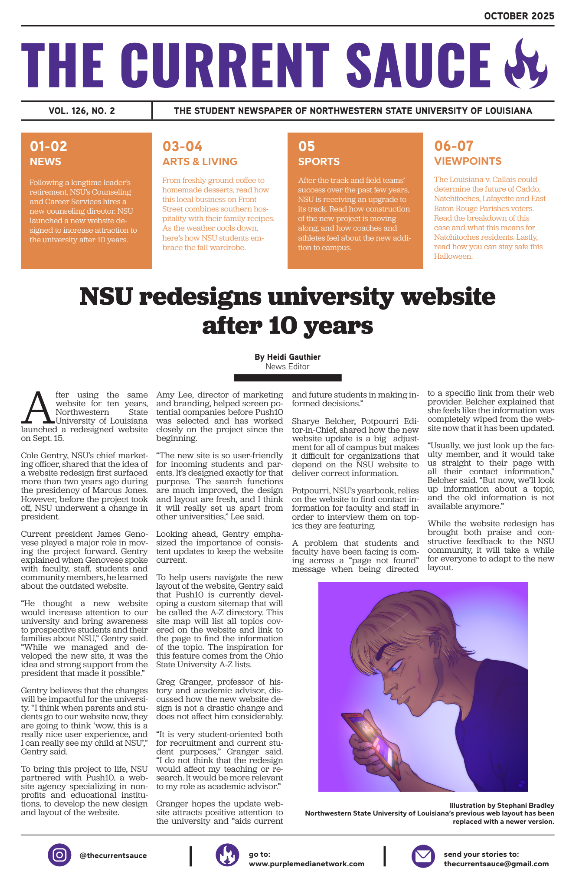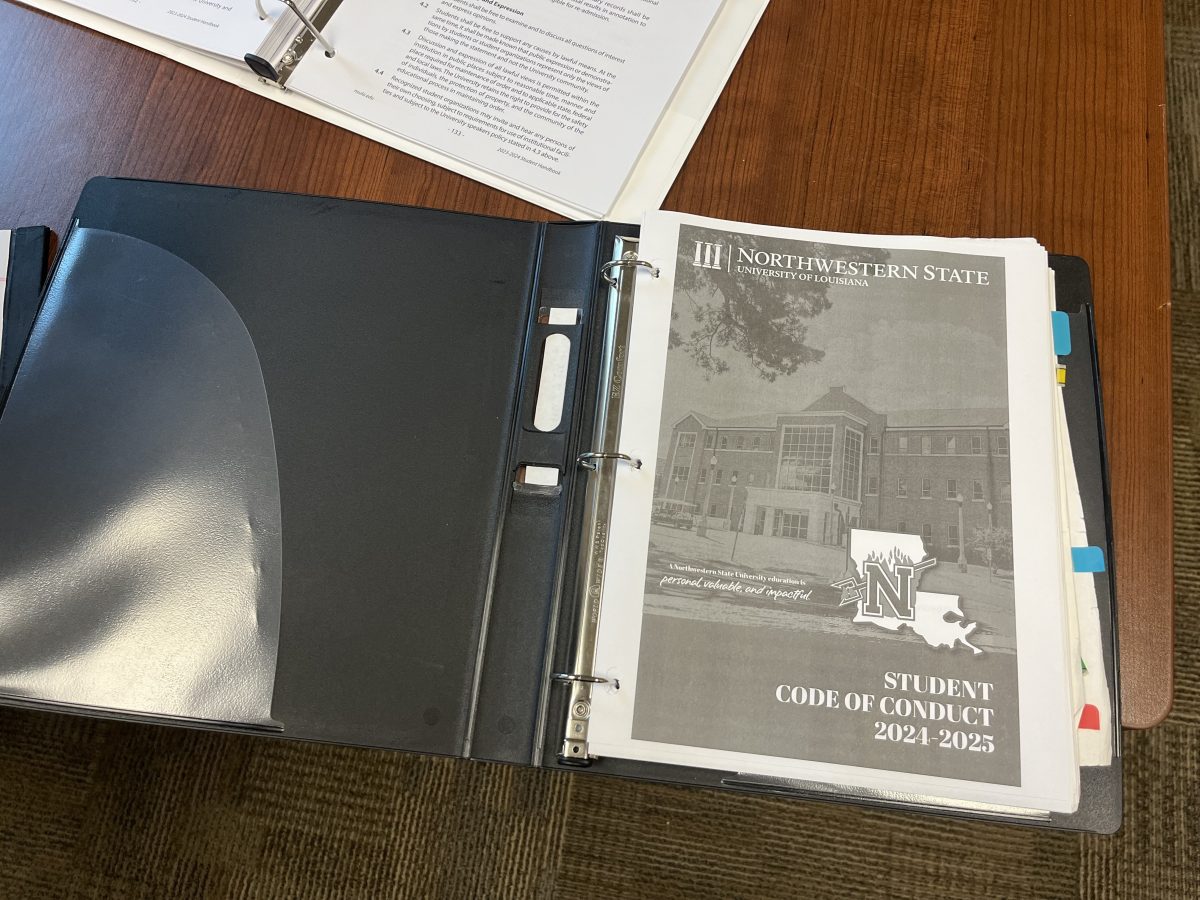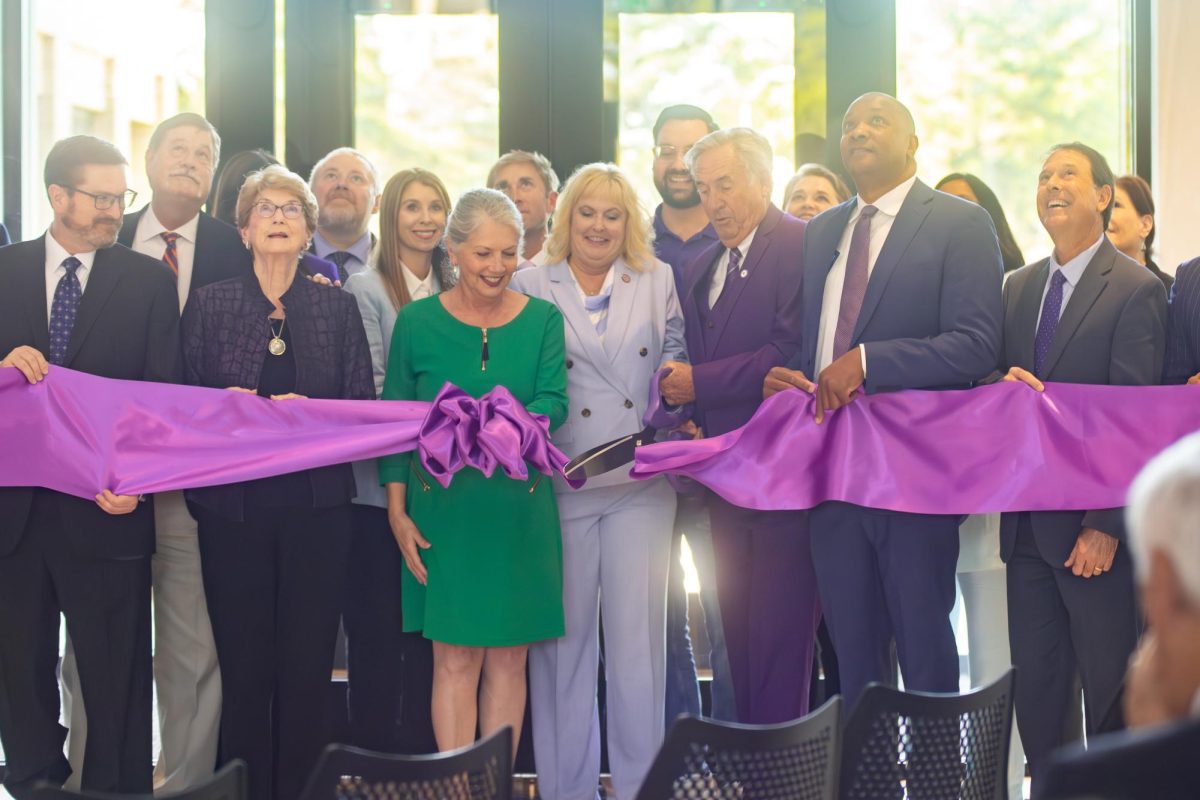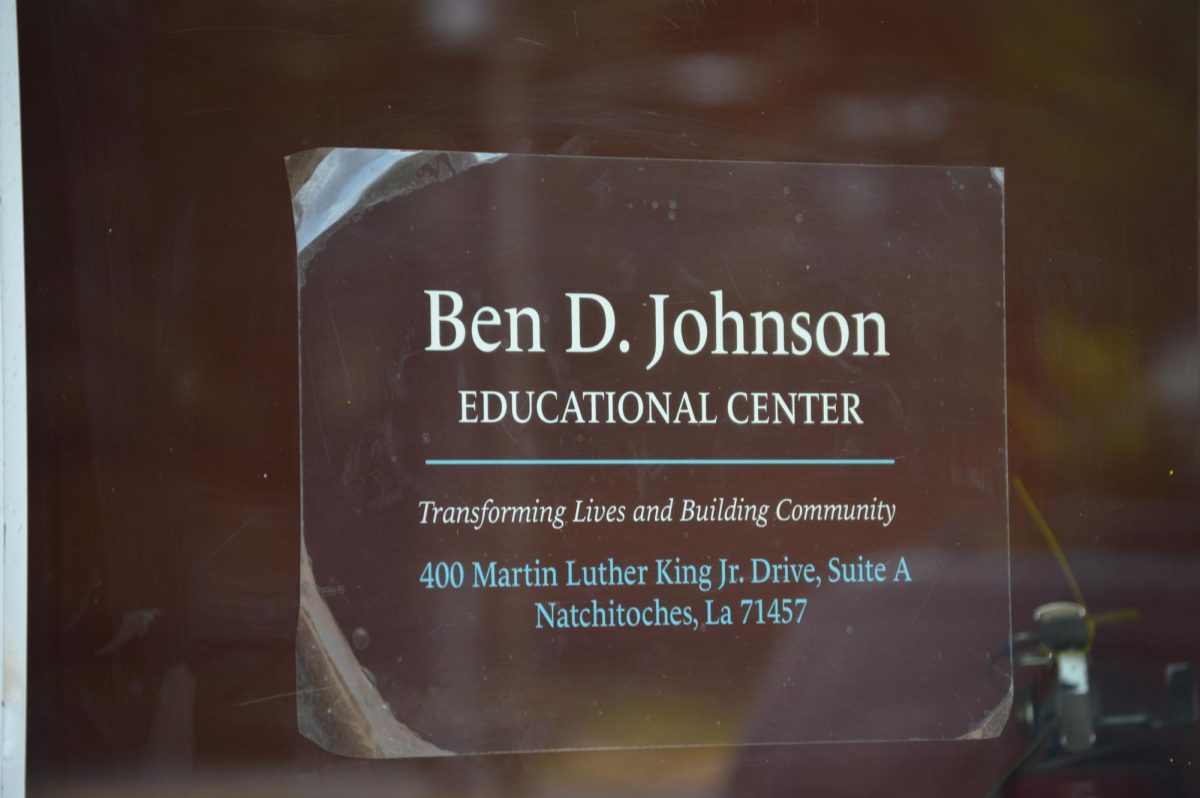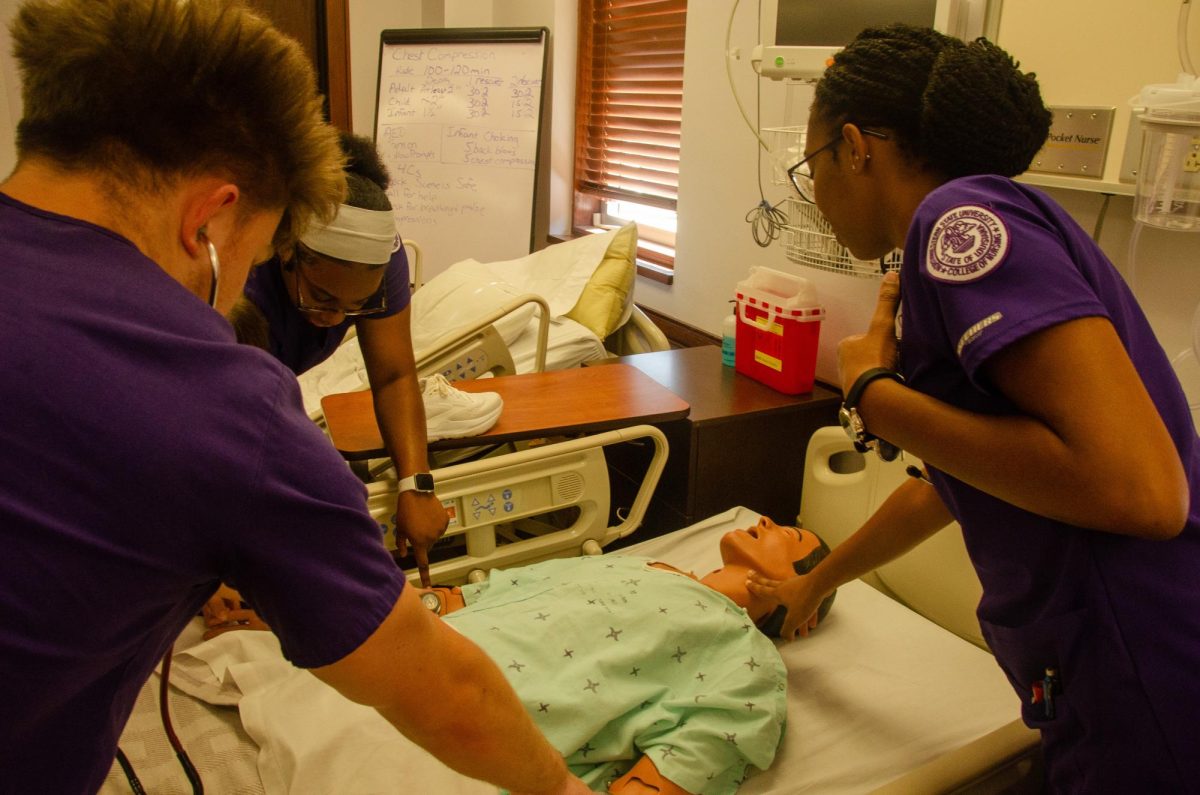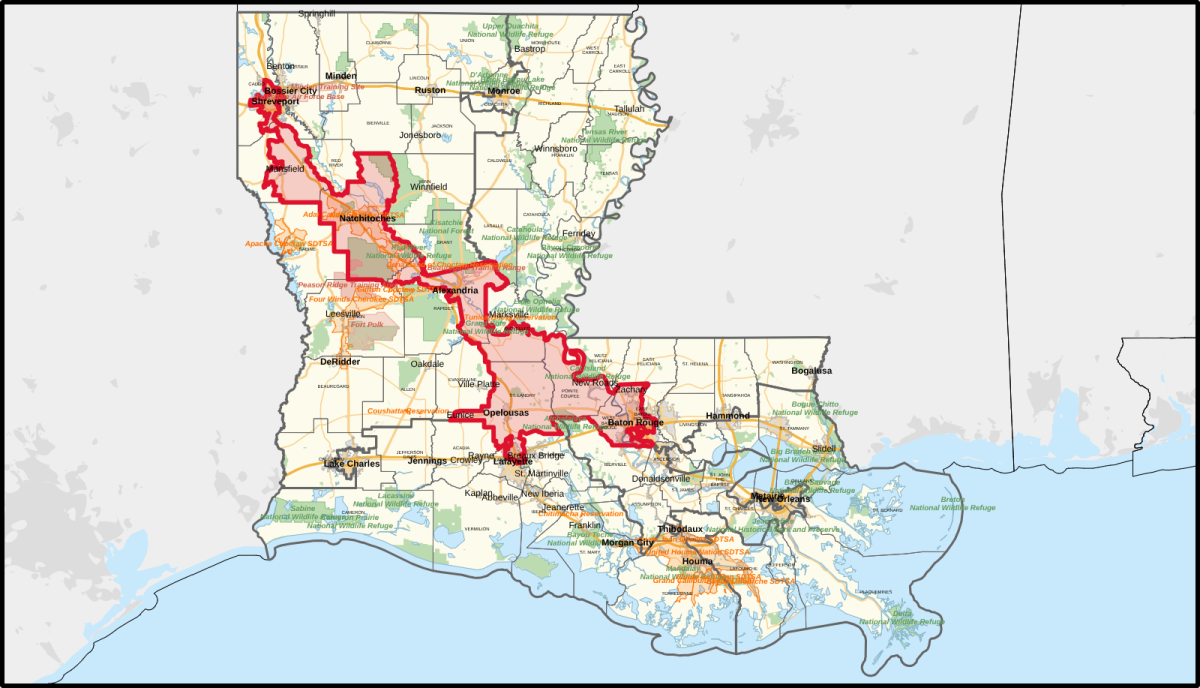As of the 2024-2025 academic year, Northwestern State University of Louisiana’s student Code of Conduct has been fully updated for the first time in seven years. Administrators responsible said they hope the update will foster a new-level of understanding of student conduct expectations.
The code of conduct is a fraction of the NSU Student Handbook which outlines standards and regulations expected of students from respective administrative figures within the university.
The code of conduct includes NSU policies related to harassment, discrimination, academic integrity, student rights, complaints against faculty and all prohibited conduct. All conduct authority, accountability procedures, appeal processes and interim measures are laid out for students to reference in the handbook regarding any situation of misconduct.
Traci LaBom-Norris, director of the Office of Accountability and Student Conduct, oversees the code.
“The purpose and importance of the code of conduct is to ensure a safe, respectful and productive learning environment,” Labom-Norris said. “It outlines the standards of behavior expected from students and the consequences of not meeting them. The expectations clearly define what behaviors are expected.”
In her role as director, Labom-Norris said she wants to encourage students to understand the importance of expectations in all aspects of their college experience.
“The Office of Accountability and Student Conduct expresses the importance of maintaining these standards in and out of the classroom,” Labom-Norris said.
Labom-Norris explained the changes made to the code of conduct.
“It was an overhaul; I mean the code of conduct hadn’t been updated in seven years, so there were changes made to the overall document itself that needed to be made,” Labom-Norris said.
Reatha Cox, Vice President for the Student Experience and Dean of Students, also said she believes in the importance of keeping the code of conduct in compliance with modern standards.
“Every year we make revisions to the code — based on a new law, based on best practices or whatever — but this was a pretty intense total rewrite and it’s been a number of years since we’ve done that,” Cox said. “So, we wanted things to be simpler, more congruent and easier to understand.”
Cox felt certain language used in the writing and policies exercised in the previous code of conduct were outdated and there were many practices that could be improved upon.
“We looked at the code of conduct while looking at it from an understanding of how students understand it,” Cox said. “Even the names, instead of ‘student discipline,’ it’s the accountability process, so we looked at a lot of things like the definitions and our processes.”
The new code of conduct uses more broad vocabulary to eliminate any cause of confusion.
“For instance, there used to be ‘you can’t get in Chaplain’s lake,’ well we changed that terminology to ‘water areas on campus’ because you know there’s not just Chaplain’s lake,” Cox said.
Many changes made to the code of conduct were similar in nature to this rewording.
“We brought our code just through a lot of realignment and rewording of some things and we did it with a fine-tooth comb,” Cox said.
To create a better understanding among the student body, there were also changes made to ways in which students can access policies in the code of conduct,she said. On the NSU website, students can now utilize a flowchart consisting of all student conduct procedures.
“We have a flow chart to help students also understand ‘if this, then this; this is what you can expect’,” Cox said. “It’s an interactive flowchart, so if you look at it—if you click this—then it’ll pop up what’s gonna happen at that process.”
Cox said she has always felt that information found in the code of conduct should be known by all students. She referenced the addition of mandatory Residential Community meetings.
“2 1/2 years ago, we implemented the Residential Community Meetings because we wanted students to be informed,” Cox said. “Students get a little dose of that, too, in their University Studies 1000 class, but we also looked at ‘how are we gonna continue to educate the entire university?’”
Cox said the flow chart and updated code of conduct will help students continue to learn NSU policies in a much clearer way.
“I think that it’s always important that we maintain a fair and an educational and efficient process for our students, and part of our job, also, is helping students understand the role that they play in that — in keeping that,” Cox said.
All changes, such as these, related to the code of conduct were made by a committee of faculty from the Office of Student Conduct and Accountability and a focus group of NSU students. Cox and Labom-Norris felt it was important to include the student perspective throughout the process of updating the code of conduct.
“We were looking at it from the facilitation part of it—from administrators and faculty that work with the code—and we were wanting it to be a more consistent understanding for our students,” Cox said.
The committee was responsible for conducting research prior to making any changes to the previous code of conduct. They did this by cross referencing codes of conduct from universities across the nation and gaining insight from specialists in student conduct.
A draft, made by the committee, was then brought to the Student Affairs Council made up of faculty, staff and students appointed by the Student Government Association and Cox for secondary review. Then, the final review was made by the University of Louisiana System attorney to be mandated at a legal level.
“We looked at the things that were great in our code, and we looked at the things that had worked well for us and for others; we looked at the things that we thought needed to be, we all identified areas that we thought needed to be more clear. Consistency is always the key,” Cox said.
Coree Nash, senior social work major, was one of the students involved in reviewing the new code of conduct. He shared how he feels student involvement impacted the process of making the changes.
“It’s an awesome way to include the student’s opinion and makes us feel like we have a voice,” Nash said. “It helps put them in a student’s shoes instead of making decisions that we don’t have a say in, but affect us a lot.”
Nash said being a part of the updating process not only benefited the student body, but also piqued an interest in himself.
“After sitting on the meeting on how to change it, it made me interested to actually inform myself on what it says,” Nash said.
Dorcia Gillam, sophomore music education major, has read portions of the previous code of conduct and thought it was already easy to understand.
“I don’t feel like it was an important change because it was pretty straight forward, and we’re college students, so we should be able to understand exactly what they are saying in the code,” Gilliam said.
While Gilliam did not find the changes in the code necessary, Gilliam said having a code of conduct is important as it keeps students held accountable for their actions.
Kay Creel, senior hospitality management and tourism major, shared how she feels about the changes made to the code of conduct.
“I think updating it as times and students change is important, yes, but I don’t think it should be a super high priority for NSU,” Creel said.
While Creel does not feel the code of conduct update should be a high priority, she acknowledged its significance from a legal standpoint, she said.
“I have never read the code of conduct. I don’t know where it is, and I feel like it is easy to know what rules NSU follows and to behave like a proper adult,” Creel said. “It is important, possibly from a legal standpoint. If a student egregiously violates the code, then the university is in good standing to enforce kicking the student out, etc.”
The code of conduct outlines NSU’s standards and expectations of the student body. Cox and Labom hope students will utilize the code of conduct and adhere to the regulations of the university.
To access the new code of conduct, visit https://www.nsula.edu/student-code-of-conduct/.

